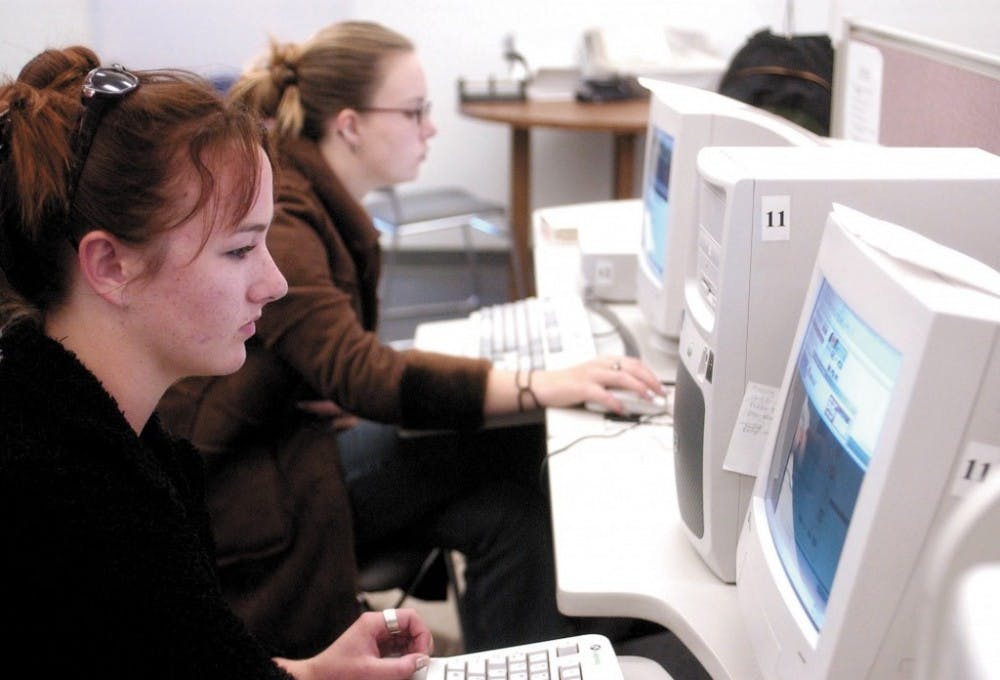With music, television and even books turning digital, now the wave of web-content has turned to the classroom.
“By 2020 in higher education there will be more collaborative online learning environments and a proliferation of massive online courses,” said Janna Anderson, director of the Imagining the Internet Center and researcher for the Pew Internet Project.
With massive open online courses, or MOOCs, increasing in popularity, thousands of students are taking courses online through sites like Coursera, Udacity and edX. Most of these courses do not offer credits to universities, but they also are free of charge to anyone who signs up.
“It brings thinking to the table. It takes the ivory towers out,” said Constance Book, associate provost at Elon.
Book worked as part of a committee at Elon that investigated the future of online courses, and enrolled herself in a Coursera class with close to 1,000 fellow students.
For Eric Carroll, a senior at Elon, taking an online class was an unfavorable experience. Carroll described the course as being simple and not feeling engaged.
“An in-person class offers greater discussion time,” Carroll said. “I think it allows ideas to be bounced off, which allows for more educational growth.”
Madison Smith, a sophomore at Elon, had a similar view on online courses.
“Half of the learning you do in a class is hearing other people’s opinions and being able to sit there and ask your teacher about something. If you take it online, you can’t do that,” Smith said. “Yeah, you’re going to learn from it, but you’re not going to learn in a very beneficial way.”
Since it's advent, higher education has been based around a direct relationship between student and teacher, but administrators at Elon say that connection can still be fostered in an online environment.
“I’ve heard faculty say, from a pedagogical standpoint, sometimes students will be drawn out in discussions in an online class in ways that they might not be or be reluctant to participate in the same way in class,” said Leo Lambert, president of Elon. “Maybe because they are a little bit on the shy side or because they feel a little bit more open to express their views in an online environment.”
Online courses are already an integrated part of Elon, with Elon’s Master of Business Administration and Master of Education programs partially online.
“I think it would be wonderful for every Elon student to have at least one online class during their time at Elon because I think that online learning is going to be part of the way that everyone participates in lifelong learning in the future,” Lambert said.
With the cost of college, both through courses and textbooks, growing every year, one of the chief concerns in the minds of students when it comes to MOOCs is price.
“The main thing is cost,” Carroll said. “In the future, if I was to guess, I would see a big shift in attendance from physical institutions to more non-physical institutions, solely because you can work and take classes more efficiently that way.”
At Elon, summer courses cost 30 percent less than the same courses during the fall and spring semesters, and for courses on MOOCs like Coursea or Udacity, generally, there is no cost to the student.
For students like Smith, however, the price change only reflects the true value of an online course.
“You’re paying for a lot of benefits you get from taking an in-person course,” Smith said. “You’re getting a professor.”
Instead of having to decide between whether Elon will move toward online courses or stay a traditional university, administrators like Lambert see a more blended classroom experience in the future.
“Online learning and MOOCs are a very interesting and promising phenomenon, but I think the core identity of Elon is very much going to remain residential and liberal arts based and very personal,” Lambert said. “But that doesn’t mean we can’t also do those things and also take on the best of what these online experiences have to offer.”


